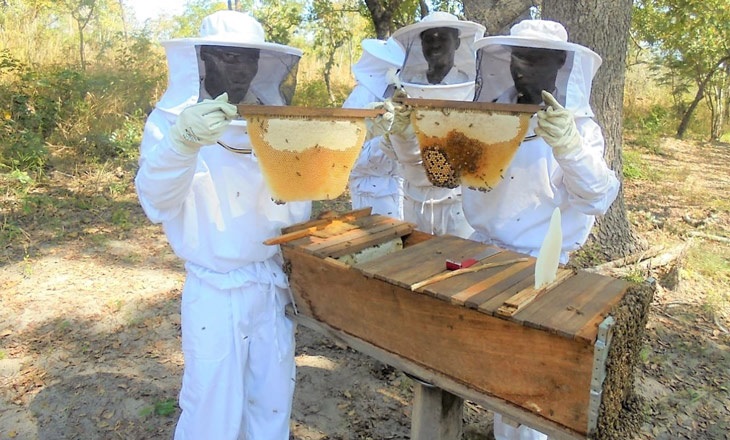Mozambique: Elephants destroying crops and granaries in Lunho, Lago district, Niassa province
Mozambique: Beekeepers in Mecula seek a market for their ‘made in Niassa’ honey

File photo: Notícias
Beekeepers operating in the Niassa Special Reserve conservation area in the district of Mecula are facing difficulties in placing their honey on the national market, due to the lack of publicity and promotion of local community projects.
They say they feel unmotivated to carry on because the revenue they earn is below their expectations and makes it impossible to implement new social and economic projects aimed at sustainability and improving the quality of life.
Moisés Muhalimo, a beekeeper and reserve employee, told Notícias that, over eight years of experience in the area, he had processed on average around 40 litres of honey daily, working with a group of 15 persons overseeing 48 hives.
According to the source, the association also purchases honey produced by other beekeeper associations as a way of raising revenue – efforts that have not had the desired effects due to the lack of market for placing the product.
To reverse the situation, the members are asking government authorities for help connecting with the national market.
“This problem of lack of market worries us, which is why I wanted to ask the government if there is the possibility of finding mechanisms to help us with a specific market in the province or here in the district for the sale of this product. We could produce the honey and go directly to our buyer” our respondent said.
In fact, campaigns are currently underway to distribute hives to people who have not had access in previous processes, a gesture that aims to attract new beekeepers seeking to boost family incomes.
The average price of honey produced by the group is 500 meticais, with the best buyers being national and foreign tourists supporting forest and wildlife conservation in that area.













Leave a Reply
Be the First to Comment!
You must be logged in to post a comment.
You must be logged in to post a comment.